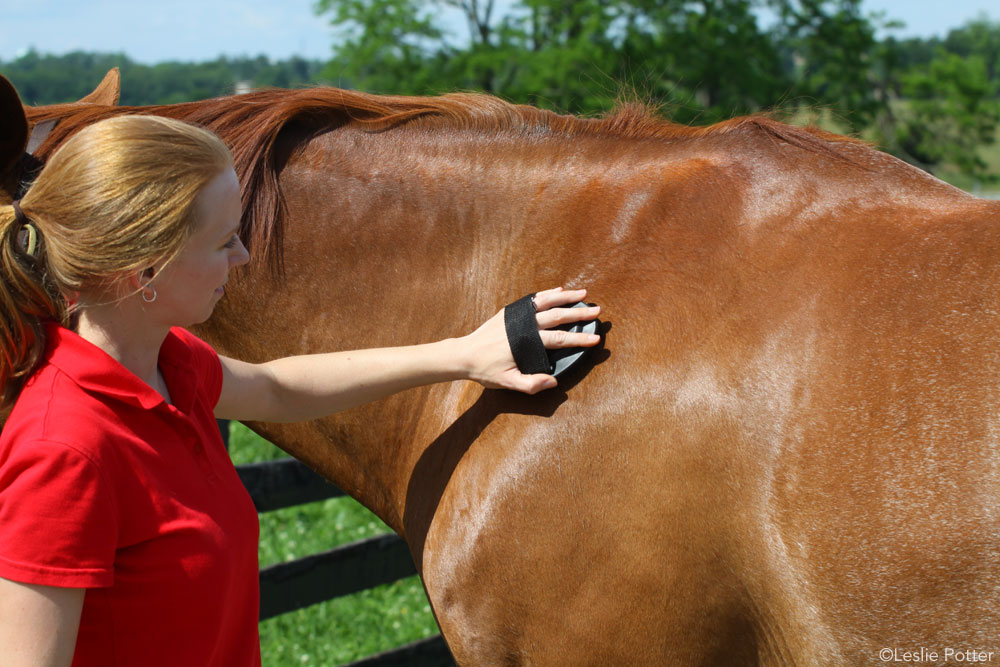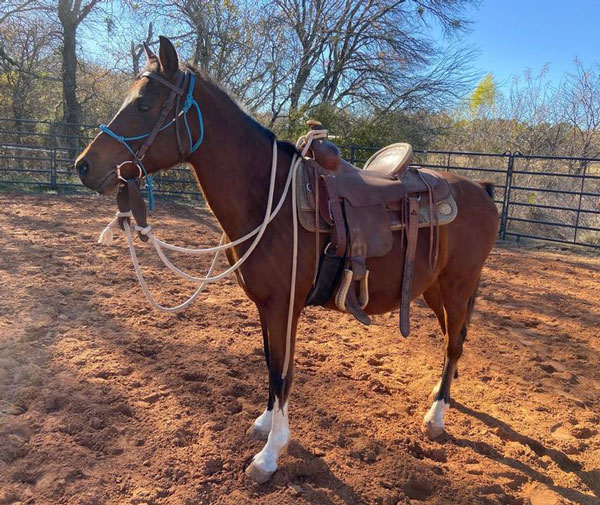Q: My horse has very sensitive skin, like so sensitive that if I use too much pressure with a curry comb he looks like he has hives. He never flinches or shows any discomfort when being groomed, and the bumps don’t seem to bother him, but they last for about 30-40 minutes. Is there anything that I can do to help him?
A: From the description of it, your horse could possibly be exhibiting “pressure hives” or “pressure urticaria.” This is an uncommon condition that falls under the main category of Physical Hives or Physical Urticaria which is hives caused by a physical stimulus such as mechanical (friction, vibration, pressure), thermal (hot or cold), or other forces.
Another name for this condition, if indeed that is what your horse is diagnosed with, is dermographism or dermatographism, which is an exaggerated tendency to form wheals when the skin is stroked. It’s actually the most common form of Physical Urticaria.

Make sure you consult your veterinarian if you think your horse may have pressure urticaria after grooming. Photo by Leslie Potter
Since it seems fairly reproducible in your horse, I recommend you schedule a visit from your regular veterinarian, have them examine your horse in the “before” or normal state, then groom in the way that causes the hives to appear, and have the vet re-examine your horse. They’ll get to see the bumps for themselves, including how quickly they appear and disappear, as well as your horse’s general response to grooming and wheal-forming. Hopefully this will confirm the diagnosis so that you can get started developing a prevention program together.
In humans, antihistamines are somewhat effective for this condition, with doctors turning to steroids and non-steroidal anti-inflammatory drugs or NSAIDs if necessary. There can be side effects to each of these classes of drugs which your vet can walk you through so that you can make an informed decision.
Several supplement ingredients have been shown to support skin health especially of the “overreactive” nature, including omega 3 fatty acids, MSM, spirulina, and adaptogens. Take advantage of your vet’s on-farm visit to also chat about these ingredients as well as the research behind them to decide if one or more might be a good addition to your horse’s regimen.





